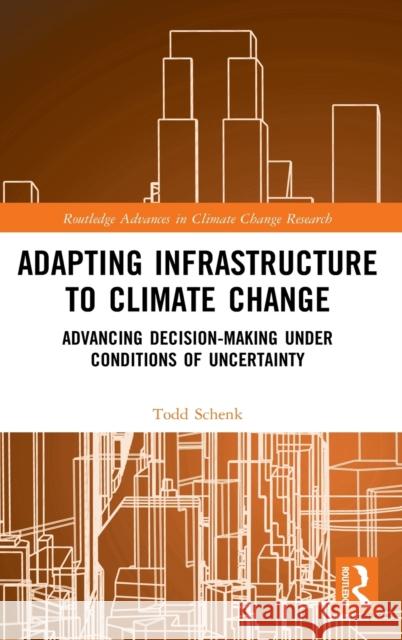Adapting Infrastructure to Climate Change: Advancing Decision-Making Under Conditions of Uncertainty » książka
Adapting Infrastructure to Climate Change: Advancing Decision-Making Under Conditions of Uncertainty
ISBN-13: 9781138194199 / Angielski / Twarda / 2017 / 254 str.
Adapting Infrastructure to Climate Change: Advancing Decision-Making Under Conditions of Uncertainty
ISBN-13: 9781138194199 / Angielski / Twarda / 2017 / 254 str.
(netto: 723,00 VAT: 5%)
Najniższa cena z 30 dni: 654,86
ok. 16-18 dni roboczych.
Darmowa dostawa!
Climate change poses a range of threats to our infrastructure systems and these threats are complicated by the uncertainty and complexity involved, which comprises more than the science or dynamic nature of the climate itself. Many of the challenges decision-makers and other stakeholders must grapple with are governance related. Planning and decision-making is evolving in ambiguous institutional environments, in which many key issues remain unresolved, including: relationships between different actors; funding arrangements; and the sources and procedures for vetting data. These issues are particularly acute at this juncture, as climate adaptation moves from broad planning processes to the management of infrastructure systems, and concrete decisions must be made. This book will draw on case studies of three coastal cities situated within very different governance regimes: Neo-corporatist Rotterdam, neo-pluralist Boston and semi-authoritarian technocratic Singapore. The author examines how infrastructure managers and other stakeholders grappling with complex and uncertain climate risks are likely to make project-level decisions in practice, and how we might support more effective decision-making. It is particularly concerned with the differences we might see across different governance regimes, which are currently unaccounted for in adaptation planning, yet are important as we devise best practices. Although the book focuses on transportation infrastructure in coastal environments, the lessons are applicable to infrastructure planning and decision-making in other contexts. This book will be of great interest to scholars of climate change, environmental policy and governance and environmental planning.











